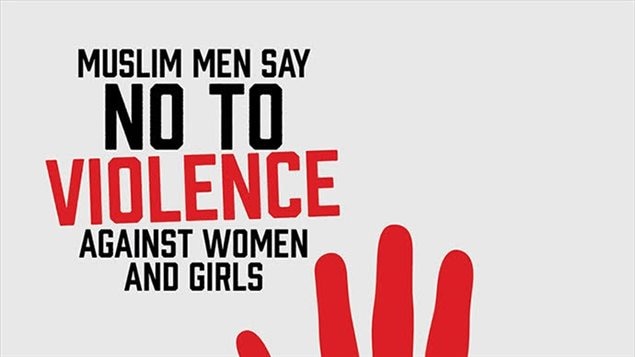The Canadian Council of Muslim Women, (CCMW) completed the first session this past Saturday, training the trainers, who will deliver workshops to Muslim men and boys in an effort to end violence in the family.
Sahar Zaidi, the project coordinator with the CCMW, said there were about 30 people in attendance at the inaugural event in Mississaugua, Ontario. Eight of the attendees were men, and while she acknowledges they would always welcome more men, they’re pleased with the results.
ListenThe CCMW, is a goup that has been advocating and celebrating Muslim women in Canada for over 45 years. This most recent initiative came out of the feedback following a program called “Health and Justice for Canadian Muslim Women”. The participants suggested it was time the other half of the population were addressed.
While acknowledging that violence in the family is not a problem restricted to any one group of people, Zaidi said that since the group is for Muslim women, it was the Muslim-Canadian experience it would research.
‘Men and boys will usually come out to events or listen to other men and especially those who hold power positions.”
The group had already identified four areas of concentration for its work with Muslim women: Violence in the Family, Femicide, or what some call honour killings, Genital Mutilation, and Forced Marriages.
Zaidi says there are a lot of myths and misconceptions around violence and cultural practices. Forced marriages, for example, are more often an issue in South Asian families, but it is practised in Hindu and Christian families as well as Muslim.
The tradition of Female Genital Mutilation, which may be understood as the female version of circumcision, is not a religious tradition. “We spoke up and said no, here is the information, here is the religious context, it’s not allowed,” Zaidi says. “We actually have religious leaders, not only in Canada, but across the world that actually condemn the practice. So it has nothing to do with religion, in fact it predates Islam in some of the regions where this practice is still taking place.”
Zaidi says in these new workshops for men they address the issues but focus more on prevention and the ways in which men and boys can be be allies to women.
“The first thing we did was create a stakeholder group, made of up many Imams, religious leaders, and community leaders who provided their expertise for this project.” Zaidi explains.
As the CCMW’s work was primarily with women the group wanted to be sure that what they would create would work. “Because men and boys will usually come out to events or listen to other men and especially those who hold power positions.”
They also teamed up with the White Ribbon Campaign, a global advocacy group dedicated to educating men and boys everywhere about violence against women, consent culture, how to intervene if you witness a violent episode, and promoting a new vision of masculinity.
Canada’s chapter of the White Ribbon Campaign conducted a needs assessment over a year for the CCMW, Last year at this time they convened seven focus groups, conducted on line surveys and continued their research interviewing key individuals. This culminated in the creation of a tool kit that will be used by many of the stakeholders in their mosques, or Islamic centres or community centres.
For now the group is working on training sessions in the major centres of the Greater Toronto Area, Edmonton, Alberta and Ottawa. Sahar Zaidi says that December 6th, the anniversary of what’s known in Canada as the Polytechnique Massacre, when 14 women-engineering students were killed by a gunman at the Montreal school on December 6th, 1989, is usually an occasion when Imam’s will address the issues of violence against women.
The CCMW wants to have the subject addressed more often, and has provided 12 discussion points that leaders can use to create sermons or talks, through an Islamic research paper they commissioned.
To reach Muslim men and boys in more remote areas of Canada, a webinar will be created to continue the work and training beyond the urban centres.







For reasons beyond our control, and for an undetermined period of time, our comment section is now closed. However, our social networks remain open to your contributions.